New destinations require new navigational tools. Four very different books from within the ‘social change’ profession highlight the complexities of achieving systemic transformation of the current economic and political orders
A significant reassessment of our current economic and political orders is underway. The need to better address our most grave societal threats – poverty, inequality, environmental collapse, social trauma, and technological overreach – is increasingly apparent. In this article, I look at how four very different books from inside the ‘social change’ profession, that self-selecting community of people who dedicate their careers to the common good, are contributing to this reassessment and inspiring hope and action.
One of the four books is an indictment of the hypocrisy that sits within the social change-philanthropy project, writ large. The other three offer what I believe are uniquely valuable and powerful new perspectives and frameworks for transforming our economics and politics.
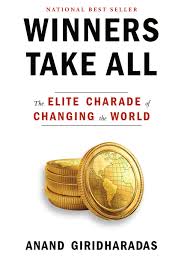 The indictment…
The indictment…
Anand Giridharadas’s Winners Take All: The elite charade of changing the world has questioned the motives of mega-rich philanthropists. Giridharadas argues that they are self-serving purchasers of a polite, limited flavour of social change which does nothing to address the underlying problems which their philanthropy merely ameliorates. Along the way, he skewers the armies of handsomely rewarded professionals who populate the conferences, foundations, social enterprises and non-profits that depend on these philanthropic capitalists. An accomplished journalist, Giridharadas’s well-strung phrases make sure that the pages fly along, dropping breadcrumbs that lead to a seemingly inevitable conclusion: there is no intellectually honest alternative to grappling with systemic and structural change but most philanthropy is not intellectually honest. The book is very much in the spirit of Mark Twain’s injunction that the writer’s job is to ‘afflict the comfortable and comfort the afflicted’.
…and three responses
The other books come from people who have spent collectively over 140 years in the day-to-day work of social change. They understand Giridharadas’s critique, but offer carefully considered insights into how to meet the challenge of systemic transformation.
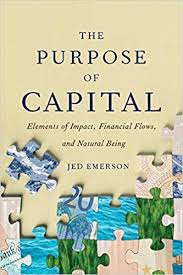 Each book reveals a distinctive persona: the Philosopher, the Activist and the Teacher.
Each book reveals a distinctive persona: the Philosopher, the Activist and the Teacher.
Author Jed Emerson’s persona is the Philosopher. Emerson spent his twenties running homeless shelters and outreach programmes before becoming a social investment manager and later a fund strategist. His concept of ‘blended value’ anticipated impact investing. His most recent book The Purpose of Capital: Elements of impact, financial flows, and natural being is something of an existential re-set button:
‘I thought this journey was bringing me to a better understanding of how to create sustained change in the world through our allocation of capital. Now, I find it has brought me circuitously down, deeper – not higher – to a place of profound personal reckoning, greater humility, and quiet reflection.’
Emerson’s call to the ‘reading life’ does not mean he is mellowing into his sixties. He is irascible as ever and his message to the impact investing and social enterprise community is blunt: stop being lazy; shut up with your frameworks, PowerPoints and smug answers; pose deeper questions about your purpose; and embrace the everyday struggle of being irrevocably connected to others.
These building blocks include a commitment to connection, and an awareness of humility, complexity, mutuality and power.
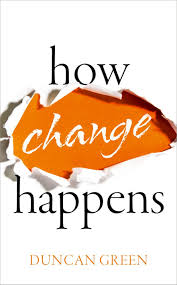 Author Duncan Green is the Activist. He has spent almost 40 years, much of it with his current employer Oxfam, working for social change. His latest book, How Change Happens, presents a ‘Power and Systems Approach’ that sees change ‘through the prism of complex systems, power and social norms’. It shows how each of these elements lives through institutions that are ‘both the object and the subject of most change processes’, including government, legal systems, political parties and large transnational corporations. The book is not a manual; the Activist specifically resists ‘the reliance on checklist toolkits’ as ‘part of the problem’. And yet, almost inexplicably, the ideas for action, evidence, case stories, cautions, analyses and insights combine into an essential and practicable guide for changemakers.
Author Duncan Green is the Activist. He has spent almost 40 years, much of it with his current employer Oxfam, working for social change. His latest book, How Change Happens, presents a ‘Power and Systems Approach’ that sees change ‘through the prism of complex systems, power and social norms’. It shows how each of these elements lives through institutions that are ‘both the object and the subject of most change processes’, including government, legal systems, political parties and large transnational corporations. The book is not a manual; the Activist specifically resists ‘the reliance on checklist toolkits’ as ‘part of the problem’. And yet, almost inexplicably, the ideas for action, evidence, case stories, cautions, analyses and insights combine into an essential and practicable guide for changemakers.
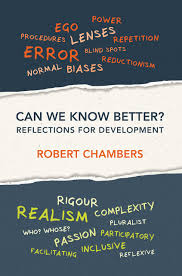 The Teacher persona belongs to the revered international development thinker and innovator of participatory methodologies, Robert Chambers. Professor Chambers is the principal author of the core canon of participatory methodologies – the everything-you-need-to-know to ‘put the last first’. His most recent book, published at the age of 85, Can We Know Better? looks to the deeper purpose of participatory methodologies, and reveals the states and habits of mind one needs for a ‘revolutionary professionalism’. Henceforth, I will give this book to any young person aspiring to professionalism in any field.
The Teacher persona belongs to the revered international development thinker and innovator of participatory methodologies, Robert Chambers. Professor Chambers is the principal author of the core canon of participatory methodologies – the everything-you-need-to-know to ‘put the last first’. His most recent book, published at the age of 85, Can We Know Better? looks to the deeper purpose of participatory methodologies, and reveals the states and habits of mind one needs for a ‘revolutionary professionalism’. Henceforth, I will give this book to any young person aspiring to professionalism in any field.
In their different ways, all four books share a strong underlying diagnosis. Part of what is wrong with social change today is that we’re all, as Emerson puts it, ‘leading with our answers’. That prevents us from teasing out the new directions that the times call us to pursue. Giridharadas coins the term ‘MarketWorld’ to describe the naiveté – or something more sinister – of the idea that those who have most benefited from the system that created the problems will be the ones to solve them.
If certainty is the greatest of illusions, these three authors provide ways to embrace the struggle of working together with uncertainty.
Above all else, these books allow us to examine why we are in our present fix. They suggest a set of ideas that might be considered as building blocks for an improved social change and philanthropy orthodoxy. These building blocks include a commitment to connection, and an awareness of humility, complexity, mutuality and power.
Humility: epistemological and personal
The strongest commonality of Emerson, Green and Chambers is an infectious call to a new humility.
The authors are studiedly self-aware in the ways they show up in their books (and they each speak unabashedly about the importance of love in social change). Here’s Chambers:
‘Let me warn you about biases, predispositions, and errors that I recognize in myself and in the origins and content of this book… You may sense that I am vulnerable to enjoying the sport of Bank- and donor-baiting. I pose as balanced but have caught myself cherry picking evidence to support the case I wish to make… This book should support all who stand for human values of inclusiveness, honesty, respect, and love. I make no apologies for my hope and optimism. I am hard-wired to look for win-win solutions. This can lead me to underplay conflict situations which are zero sum. But I cannot help being thrilled by what I see as vast potential for practical realism.’
Chambers shows how all participatory methodologies stand in a kind of epistemological humility – a scepticism about one’s own viewpoints, a willingness to be shown one’s blind spots[1], an imperative to invite and absorb how others see you.
These three authors all make it clear that they believe effectiveness in social change requires introspection and personal growth. They have slightly different vocabularies for this. Green recounts how activists wrestle with trade-offs and conflicting priorities. Emerson forges an unbreakable bond from capital to personal meaning. Chambers exudes an irrepressible joy in the lives of others that has always been at the heart of participatory methods, but in this book takes on a larger resonance.
The linear and single-organisation-bounded ways of working that we have long relied on to address important societal problems no longer work.
All three books emphasise the need for a self-critical stance, of listening to others more than knowing the answer, of valuing the quality of the connection with those who have most at stake, and, ultimately, putting the last first. If certainty is the greatest of illusions, these three authors provide ways to embrace the struggle of working together with uncertainty.
What matters is not where you start, but whether you are on a journey to systemic change. As Chambers might remind us, ‘Start, stumble, self-correct, share’.
Complexity-aware
The world appears to be more chaotic and uncertain by the day. For the first time since the end of the Second World War three-quarters of a century ago, authoritarian populism is on the rise almost everywhere. The linear and single-organisation-bounded ways of working that we have long relied on to address important societal problems no longer work. The answers we need are non-linear, embracing the idea that we sit within complex systems in which cause and effect cannot be predicted, and solutions are emergent, iterative and interconnected.
Fortunately, non-linear does not mean unsystematic! The new ‘complexity-aware’ ways of thinking and working, the methods, tools and approaches for the world today are very well developed. Each of these books spends hundreds of pages educating us about them. Three books alone cannot cover the new canon of social change, but they make a great start.
All three authors point to the essential importance of relationships, for all of us, everywhere. In a world characterised by increasing rates of interconnection, the polarities of difference between people of all types – of power, wealth, identity, place, education – need to be addressed and remade through relationships of genuine mutuality. Nowhere is this more challenging, or of potentially greater impact, than in markets, where transactions and not relationships reign supreme. Emerson radically reframes this understanding of market value as ‘all impact is mutual impact’, directing his call to the investors who have not learned the lessons of the investor induced global recession of 2008.
Power-aware
Some people have too much power (and wealth), others don’t have any. Shifting power does not have to diminish anyone. Mutuality requires that power be shifted. In fact, there is a win-win here, in the sense that when those who have too much power give some of it up, they gain tenfold in other currencies, like personal growth and well-being. The path forward here is described by Green who distinguishes four types of power: power within, power with, power to, and power over. Chambers reminds us that there is a fifth kind of power – the power to empower – which happens when the ‘uppers’ convene and facilitate ‘lowers’. Or, as Chambers succinctly puts it, the powerful should ‘hand over the stick’. Whether philanthropy does so or not might prove one of its most significant tests.
Permanent change
There is nothing soft, or easy, or naïve about these authors calling us to a more reflective, inter-personal and inclusive world. Each has done the hard labour of being thorough. One does not need to be as rigorously reflective as the Philosopher, as transparent and explicit about the implications for people in one’s strategy choices as the Activist, or as epistemologically humble as the Teacher. But if you choose to be a changemaker of any kind, these three stars make a bright constellation to steer by.
For better and worse, our lot is one of ever increasing rates of change. As chaos and incoherence seem to rise around us, these three books offer ways to navigate from our best selves to a better world.
David Bonbright is chief executive, Keystone Accountability.
Email: davidb@keystoneaccountability.org
Twitter: @davidbonbright
Footnotes
- ^ We all have our blind spots and these books propose a remedy of humility and self-reflection. One blind spot in this article comes from me being a white male choosing four male authors, three of whom are white. At a minimum it feels important that female authors’ views on these books are called for.

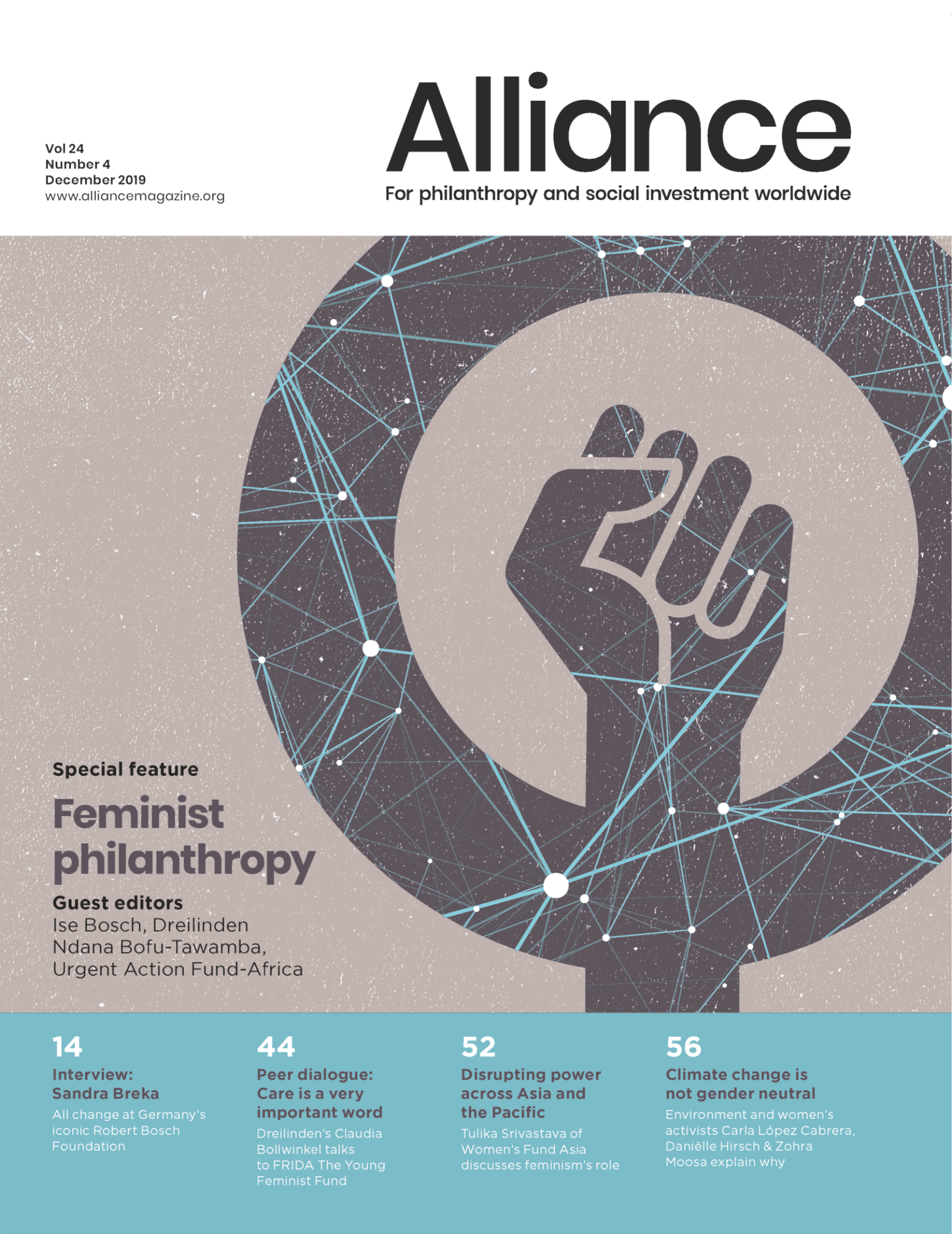




Comments (0)